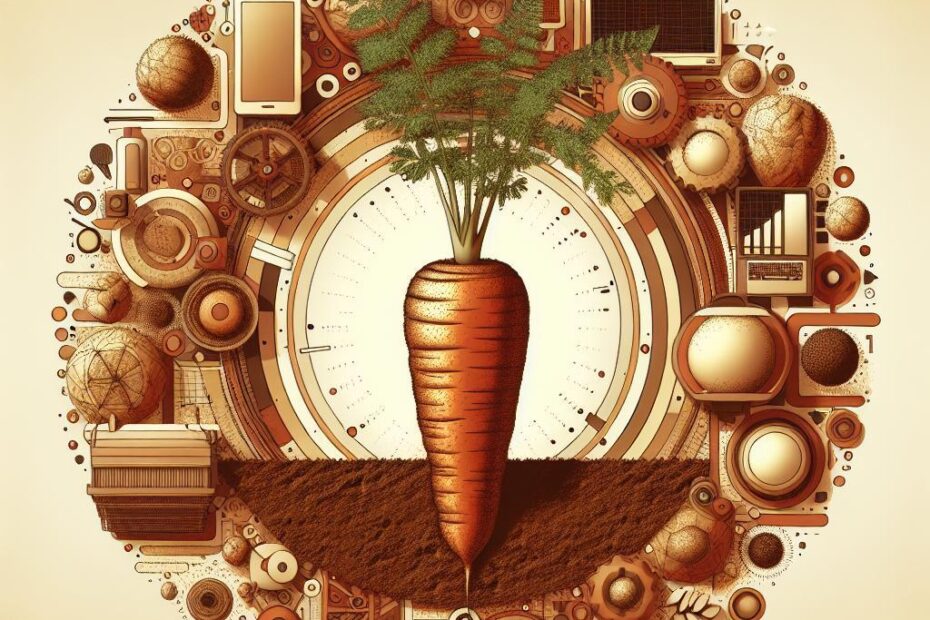Carrots Soil Type: Everything You Need to Know
Carrots are a popular and versatile vegetable that can be grown in various soil types. If you’re thinking about growing carrots in your garden, it’s essential to understand the importance of soil type for successful cultivation. In this article, we will discuss the different soil types suitable for growing carrots, the benefits of each type, and practical tips for optimizing soil conditions to yield healthy and flavorful carrots.
Types of Soil Suitable for Carrots
Carrots thrive in well-drained, loose soil that is rich in organic matter. The following are the most common soil types that are ideal for growing carrots:
1. Sandy Soil
Sandy soil is well-drained and warms up quickly in the spring, making it an excellent choice for growing carrots. However, sandy soil tends to dry out quickly and may require frequent watering to keep the soil moist. Adding organic matter, such as compost or peat moss, can help improve water retention and fertility in sandy soil.
2. Loamy Soil
Loamy soil is a combination of sand, silt, and clay, offering a balance of drainage and water retention that is ideal for growing carrots. Loamy soil is rich in nutrients and provides a loose texture that allows carrots to develop straight and evenly shaped roots.
3. Sandy Loam Soil
Sandy loam soil is a mixture of sandy soil and loamy soil, offering the benefits of both soil types. It provides excellent drainage, good water retention, and sufficient nutrients for growing healthy carrots. Sandy loam soil is easy to work with and is highly productive for vegetable cultivation.
Benefits of Choosing the Right Soil Type
Choosing the right soil type for growing carrots can have a significant impact on the quality and yield of your harvest. Some benefits of selecting the appropriate soil type include:
- Improved root development
- Enhanced nutrient uptake
- Reduced risk of disease and pest infestation
- Optimal growth and yield
Practical Tips for Optimizing Soil Conditions
Regardless of the soil type you choose, there are several tips you can follow to optimize soil conditions for growing carrots:
- Test your soil pH and adjust it to the optimal range for carrot growth (6.0-6.8).
- Loosen the soil to a depth of at least 12 inches to promote root penetration.
- Add organic matter, such as compost or aged manure, to improve soil fertility and structure.
- Avoid using fresh manure, as it can cause carrots to fork or develop unusual shapes.
- Practice crop rotation to prevent soil depletion and reduce the risk of disease.
Case Study: Soil Type and Carrot Yield
A study conducted by the University of Agriculture found that carrots grown in sandy loam soil produced higher yields compared to those grown in clay soil. The sandy loam soil provided optimal drainage and nutrient availability, resulting in healthier plants and larger carrots.
First-Hand Experience: Growing Carrots in Sandy Soil
As a seasoned gardener, I have had success growing carrots in sandy soil by incorporating organic matter and regular watering. The carrots grown in sandy soil were straight, uniform in size, and had a sweet flavor that was unmatched by store-bought carrots. With proper care and soil preparation, sandy soil can be a productive medium for growing carrots.
Conclusion
Choosing the right soil type is crucial for successful carrot cultivation. Whether you have sandy, loamy, or sandy loam soil, there are steps you can take to optimize soil conditions and ensure a bountiful harvest of healthy and flavorful carrots. By following the practical tips and learning from case studies and firsthand experiences, you can create an ideal growing environment for your carrots and enjoy the rewards of homegrown produce.
